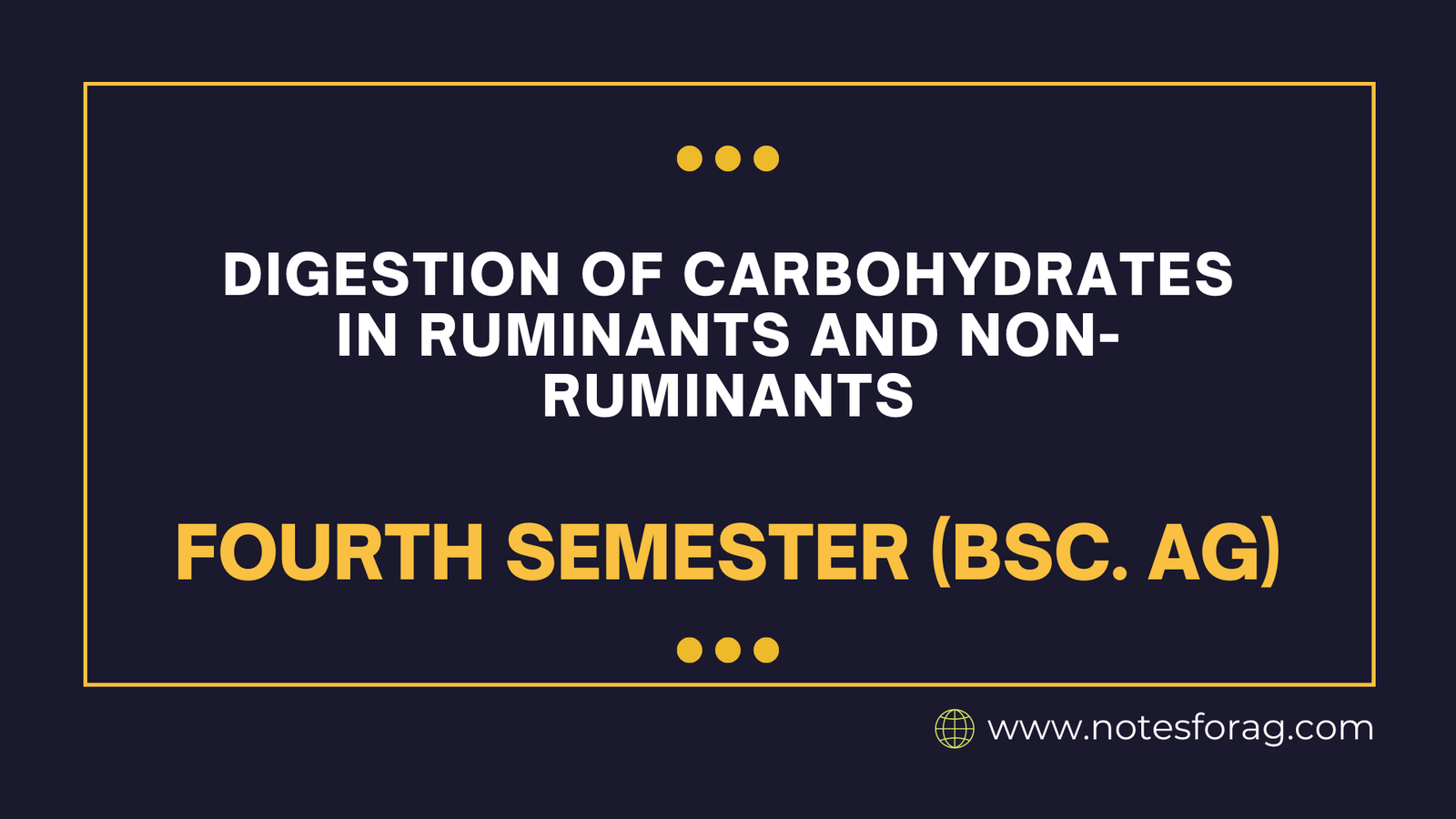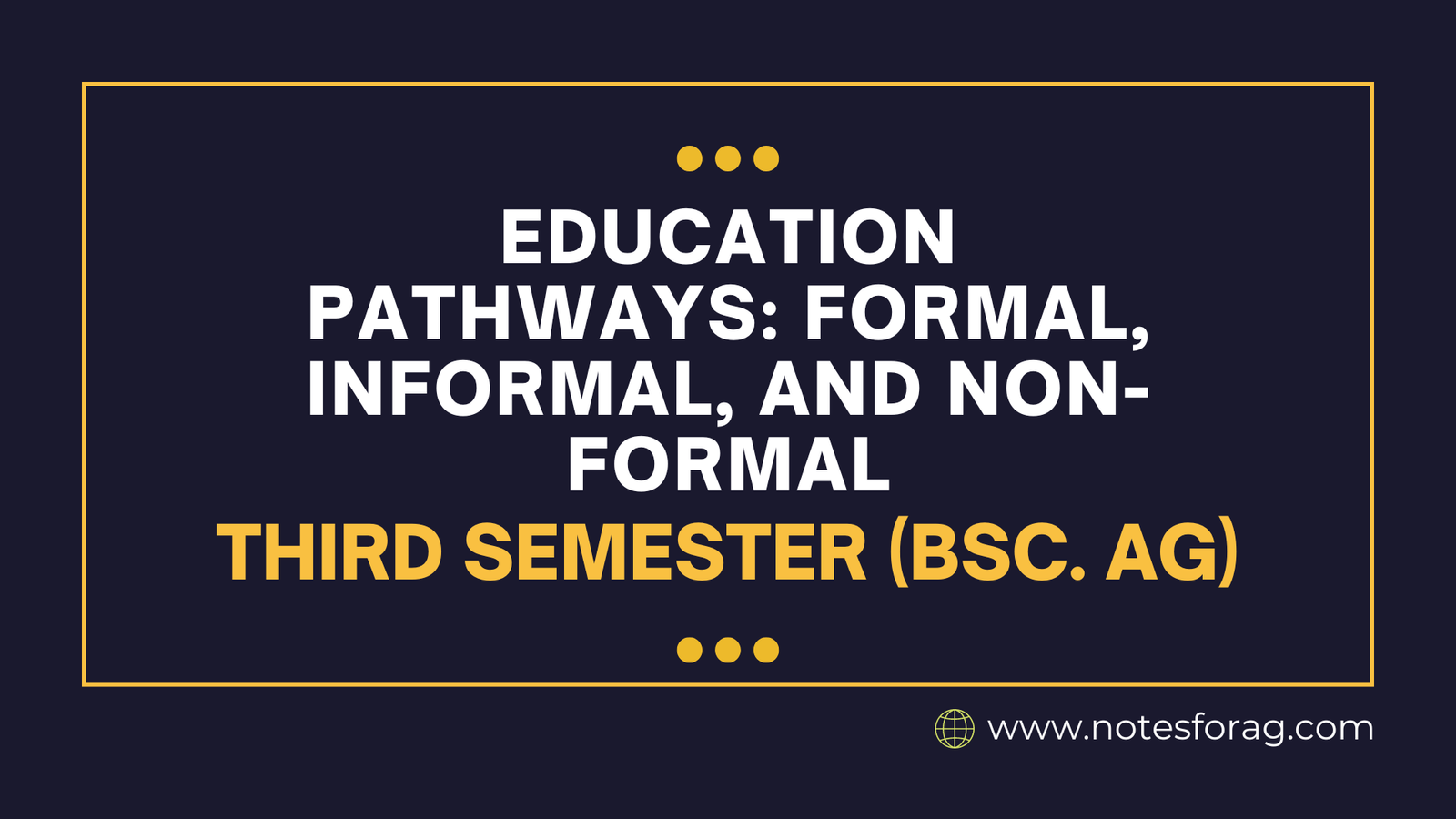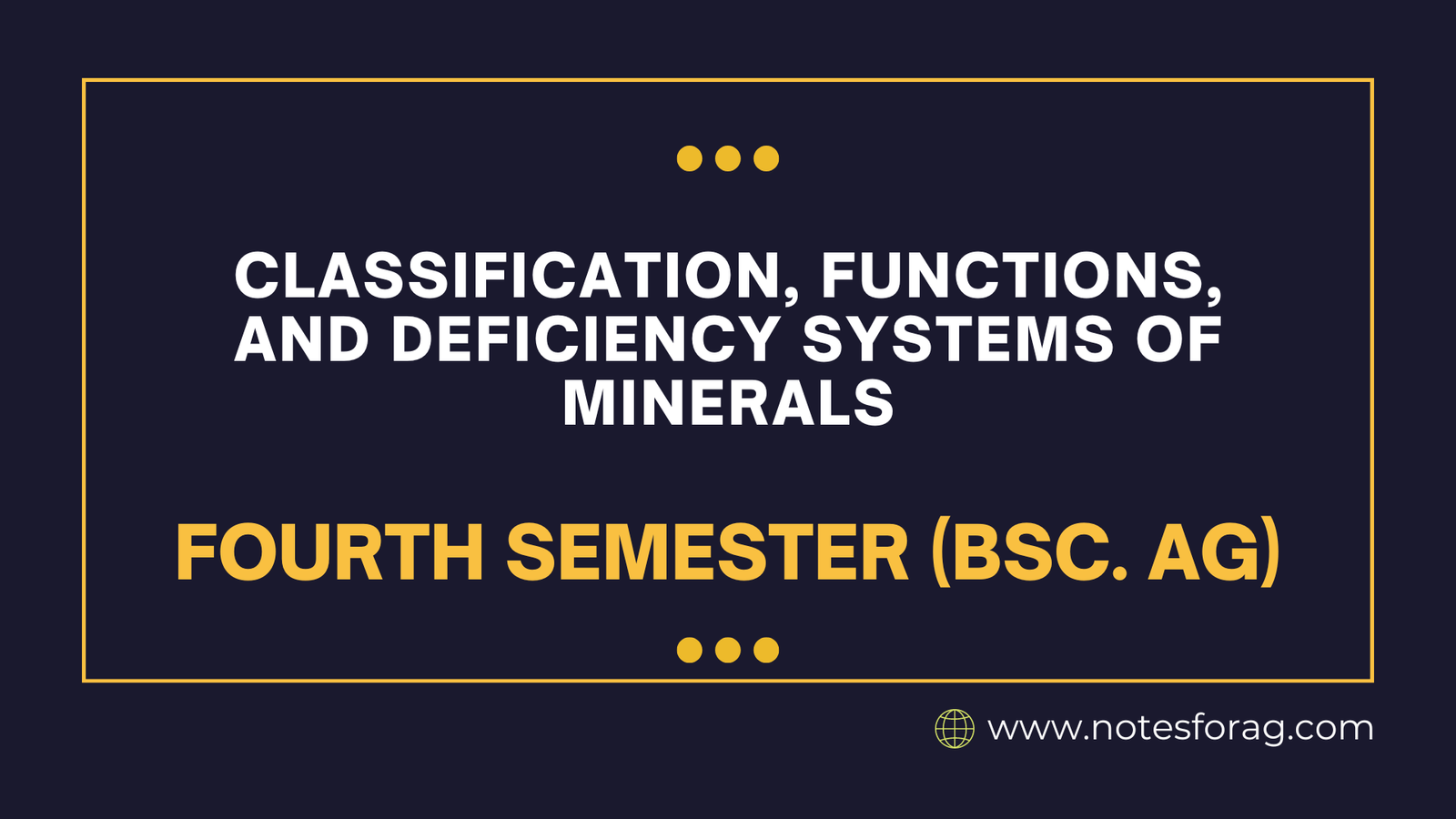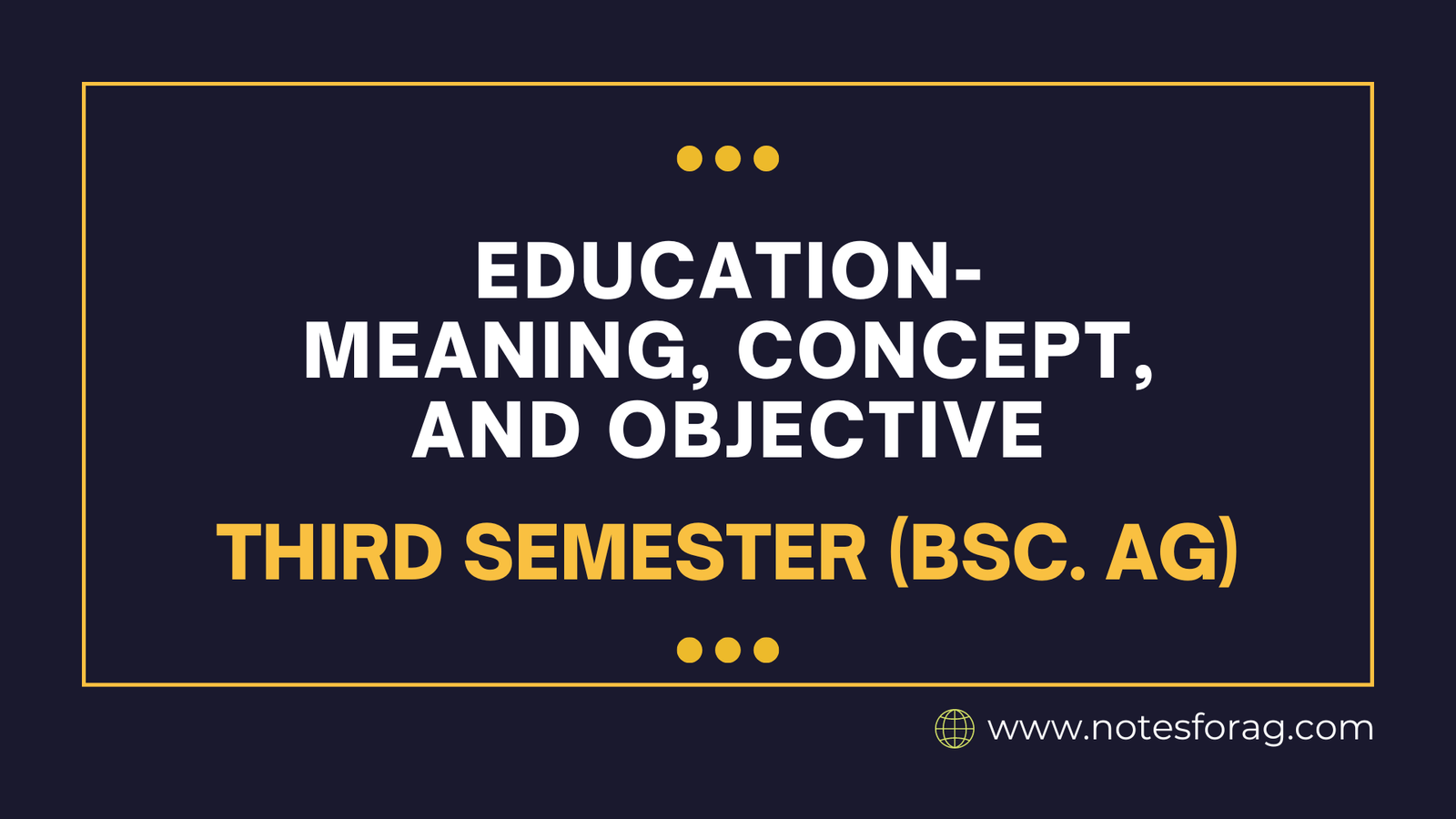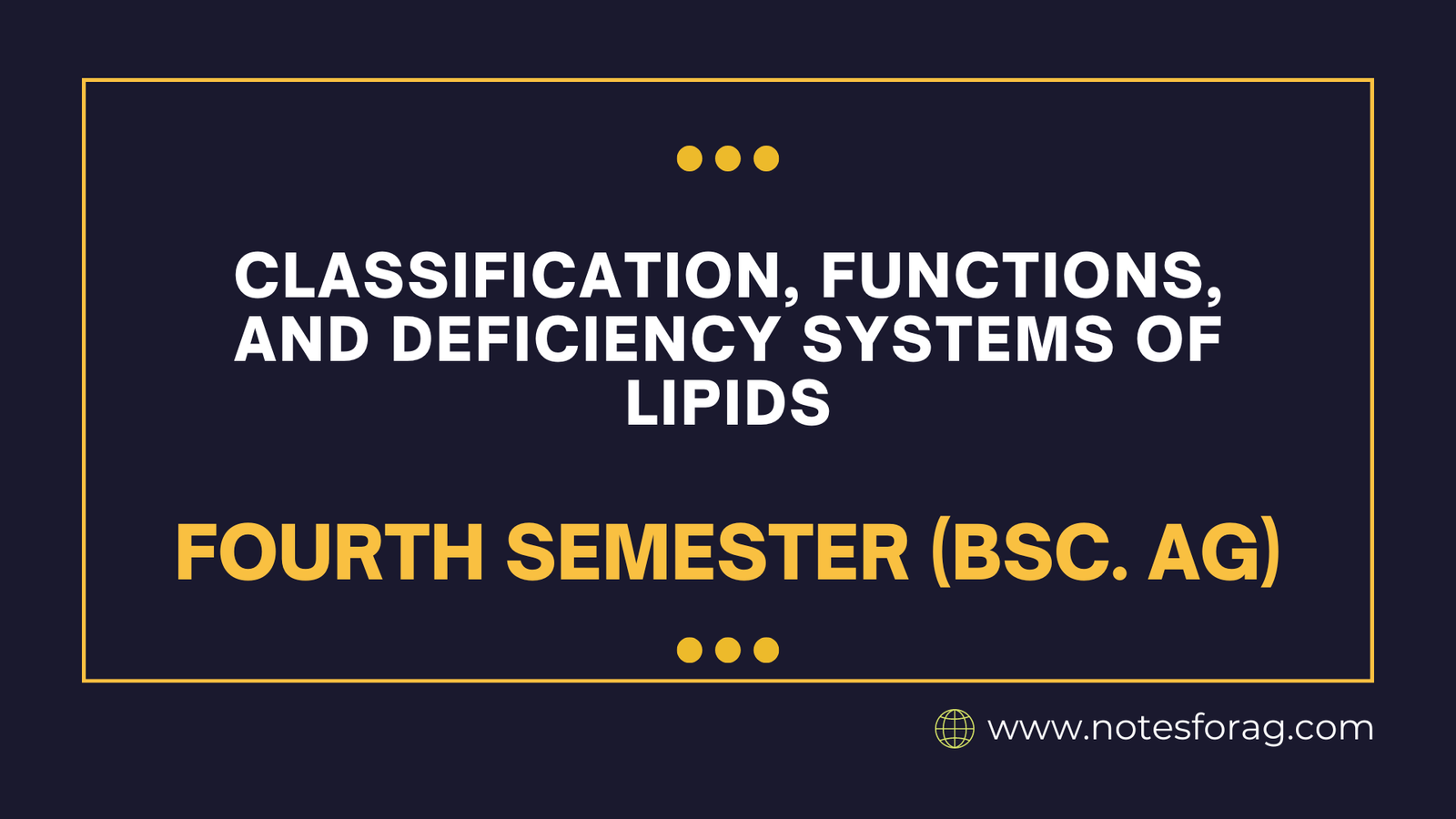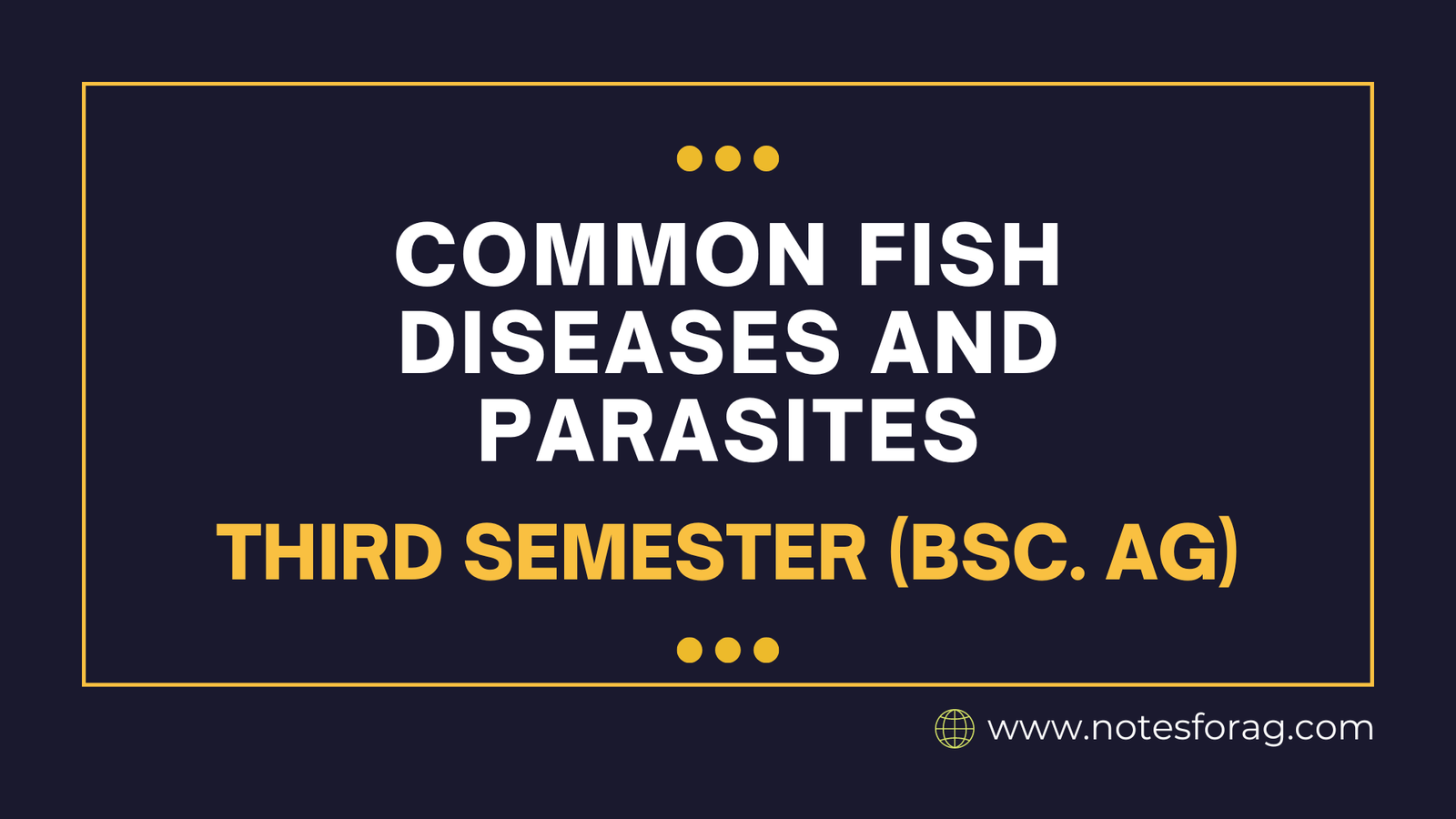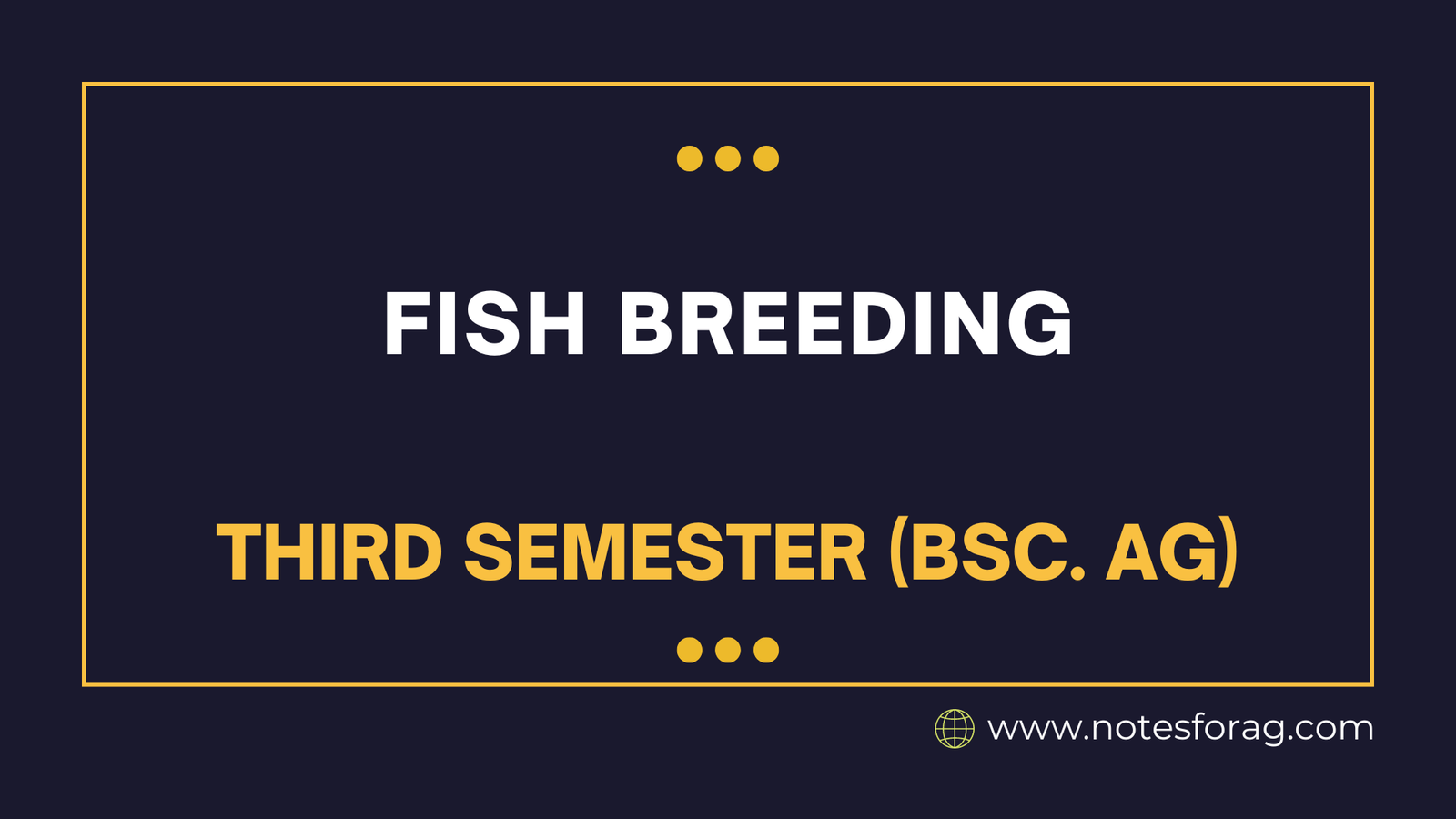Agriculture Development- Scope and Goals of Extension Education
Agriculture development and extension education collaborate to promote food security, environmental conservation, and general quality of life for rural populations. Crop enhancement, soil and water management, insect control, farm mechanization, post-harvest technology, and market access are some of the measures aimed at improving agricultural development, sustainability, and rural livelihoods. Extension education plays an important part … Read more




